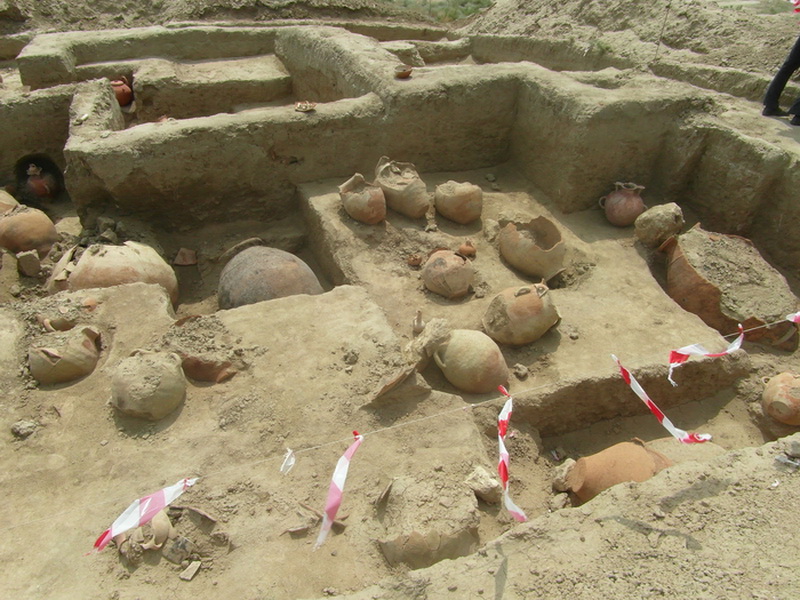Significant archeological findings in Azerbaijani region

By Nigar Orujova
An ancient cemetery was found during excavation work in the Babazanli stone pit under the Alat-Masalli motorway construction in Azerbaijan which started in 2011, at a location between Shorkend and Chuxanli villages. This became the beginning of large-scale archeological excavations from October 2011.
Found as a result of archaeological studies, archeological and cultural samples are significant not only for Azerbaijan, but for the whole Caucasus.
Archeological excavations serve as one of the means to research the ancient Azerbaijani history.
The excavations by the National Academy of Sciences Institute of Archaeology and Ethnography in the Salyan region, 126 km from the country's capital of Baku, are expected to play an enormous role in this respect.
The research provides grounds to suggest that people lived in Salyan territory as long as 2,800 years ago.
Salyan archeological expedition head, Professor Arif Mammadov said the research work was conducted with the participation of youngsters in the southeast of Babazanli, Azertag news agency reported.
The archeologists researched the important part of jar burials, which were found during the excavations. Cranial bones found at the excavation site belonged to the Dolichocranial type of humans with a relatively long head.
According to Mammadov, all these jar burials belong to the Caucasus Albanians. The researches confirmed that the local Albanians had pagan funeral traditions in the period of Caucasus Albania's formation as a state (presumably 4th century BCE).
Drawings on some of the excavated graves show the religious beliefs of the ancient people, and remind of ancient Turks' shamanic traditions.
The deceased were buried in a jar with their property around, including metal arms, stamps, beads, rings and earrings.
The results of the excavations in Salyan showed that the Azerbaijani region Mugan, which is believed to have been a part of the Atropatena state (about 320 BCE to 3rd century AD), pertained to the history of Albania. At the same time, researches showed that Salyan was a center of the Mugan culture dating back to IX-VIII century BCE.
The excavations have been suspended due to unfavorable weather conditions, while archeological researches in the southwestern part of Babazanlı will continue.
Now scientists are working on preservation of the samples discovered during the excavations, which need special care in saline soils under the open air. This will be a very important task to perpetuate the memory of ancestors, as well as a rich material culture for future generations.
Here we are to serve you with news right now. It does not cost much, but worth your attention.
Choose to support open, independent, quality journalism and subscribe on a monthly basis.
By subscribing to our online newspaper, you can have full digital access to all news, analysis, and much more.
You can also follow AzerNEWS on Twitter @AzerNewsAz or Facebook @AzerNewsNewspaper
Thank you!
